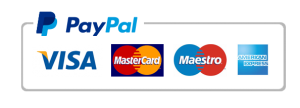The Sharpe case is a good opportunity for you to apply the stock and portfolio analysis metrics that we recently covered in class. Put yourself in the shoes of Alex Sharpe, who is moving from a passive investment strategy focused on the Vanguard 500 index fund to an active investment strategy by selecting a specific stock to add to her (small) portfolio.
In the questions below, you are asked to analyze returns for Hasbro and R.J. Reynolds Tobacco Company to determine which stock you should add to the portfolio. Please answer the following questions in your
writeup:
Your case study assignment must be formatted using standard font sizing (11), margin sizing (1 inch), and line spacing (not more than double spaced). Assignment length is 6 pages.
1. Calculate and compare the annual returns and annual standard deviation on a stand-alone basis
for the 5-year period for 1) the Vanguard 500 Fund, 2) Reynolds stock, and 3) Hasbro stock.
Which stock appears to be riskier, Reynolds or Hasbro?
2. Of the total portfolio investment, suppose 99% of Sharpe’s portfolio was invested in the
Vanguard 500 Fund and the remaining 1 % was invested in either Reynolds or Hasbro. Calculate
the standard deviation of a Vanguard 500-Reynolds portfolio versus Vanguard 500-Hasbro
portfolio and compare it to the Vanguard 500’s stand-alone standard deviation. Compare this to
what you found when you analyzed each of the companies in question 1.
3. Calculate beta for the monthly returns on 1) Reynolds, and 2) Hasbro per the monthly returns on
the Vanguard 500. You can use Excel to do this in just the same way as I demonstrated in class.
What does the beta for each stock tell you about that stock compared to the Vanguard 500? In
this case, the Vanguard 500 is acting as a benchmark for the market. Compare the beta results to
what you found in question 2.
4. Use the Capital Asset Pricing Model (CAPM) to determine the required rate of return for
Reynolds and Hasbro. For this question, use a risk-free rate of 2%, the average annual return for
the Vanguard 500 fund as the market rate, and beta for Reynolds and Hasbro. Explain what the
results mean for each stock.
5. Using your calculations from questions 1-5, make a recommendation as to whether Alex should
invest 1 % of her portfolio in either Reynolds or Hasbro given that she has just decided to move
from a passive to active investing strategy and, according to the case, she ”wanted to begin
conservatively.”
Case Format
As we learned in the first case writeup, how you present your information in the writeup is very
important. This will likely be the case if you seek to work in the financial sector or in academia. I
recommend that you take great care in thoughtfully presenting your case information and data.
Start your writeup with a short summary of the case and how you intend to analyze the data. Next, create a section called “Analysis” where you begin to answer the questions I posed above. You are welcome to include tables here to summarize your data in a manner that is either dropped directly into the text or as an attachment at the end of your writeup. The final section of your writeup should be your “Conclusion”where you make a recommendation by answering question 5.
Read over your writeup to make sure it ties neatly together. Ask yourself if another reader could easily follow your logic from start to finish and come up with the same conclusion as you did.




